Welcome to our guide on lead paint disclosure acknowledgment letters! Whether you're a landlord, tenant, or a real estate professional, understanding the importance of this crucial document is essential for ensuring safety and compliance. Lead-based paint can pose significant health risks, especially in homes built before 1978, so acknowledging this information protects everyone involved. Dive in to discover a comprehensive template and tips on how to effectively address this matter in your correspondence!

Property address
Lead paint disclosure is a crucial aspect of real estate transactions involving properties built before 1978 in the United States, as these properties may contain lead-based paints. The property address, such as 123 Main Street, Springfield, serves as the specific location where this acknowledgment process occurs. Buyers must receive a lead hazard information pamphlet, which details the risks associated with lead exposure, especially for children and pregnant women, emphasizing the importance of safety measures. The acknowledgment form must be signed by both parties indicating that the buyer understands the potential risks of lead paint and the age of the home. This process protects both the seller's liability and the buyer's right to informed decision-making.
Disclosure of known information
Lead paint, commonly found in homes built before 1978, poses significant health risks, particularly to children and pregnant women. Regulations mandated by the Environmental Protection Agency (EPA) require disclosures regarding the presence of lead-based paint and related hazards. Property owners must provide tenants or buyers with relevant information, including the lead hazard pamphlet, "Protect Your Family from Lead in Your Home." This pamphlet outlines the dangers, potential exposure routes, and protective measures to take. Acknowledgment of this disclosure is essential in real estate transactions, ensuring that buyers and tenants are informed of potential risks prior to occupancy or purchase.
Acknowledgment of receipt
Lead-based paint disclosure is critical in residential properties built before 1978 in the United States. The U.S. Environmental Protection Agency (EPA) mandates landlords and sellers to provide a lead hazard information pamphlet, informing tenants or buyers about potential lead-based paint risks. The acknowledgment of receipt form must be signed by both parties, confirming that the tenant or buyer has received this essential information. Proper documentation protects property owners from liability related to lead exposure, while ensuring that residents are aware of safety precautions necessary for maintaining a healthy living environment.
Signature lines for parties
Lead paint disclosure laws are essential for protecting public health, particularly concerning residential properties built before 1978, when the use of lead-based paint was banned in the United States. Federal regulations under the Residential Lead-Based Paint Hazard Reduction Act mandate that sellers and landlords provide potential buyers and tenants with an informational pamphlet on lead hazards, along with a disclosure form stipulating the presence of lead paint. This acknowledgement form requires signatures from both the seller or landlord and the buyer or tenant, confirming they have received the necessary information regarding lead paint. It ensures accountability while promoting awareness of the risks associated with lead exposure, especially for vulnerable populations like children. The form typically includes specific details, such as property addresses and the date of the acknowledgment, enhancing clarity and legal validity.
Compliance with regulations
Lead paint, a hazardous material often found in homes built before 1978, poses significant health risks, particularly to children and pregnant women. The U.S. Environmental Protection Agency (EPA) mandates strict regulations concerning lead paint disclosures during real estate transactions. Homeowners and landlords must inform potential buyers or renters about the presence of lead paint or lead-based hazards. Compliance with the Residential Lead-Based Paint Hazard Reduction Act requires documentation, including a Lead-Based Paint Disclosure form, to acknowledge the risks associated with lead exposure. Failure to adhere to these regulations can result in legal repercussions and financial penalties for property owners. Local agencies, like state health departments, often oversee enforcement of these regulations, ensuring the safety and awareness of communities regarding lead toxicity.
Letter Template For Lead Paint Disclosure Acknowledgment Samples
Letter template of lead paint disclosure acknowledgment for real estate agents.
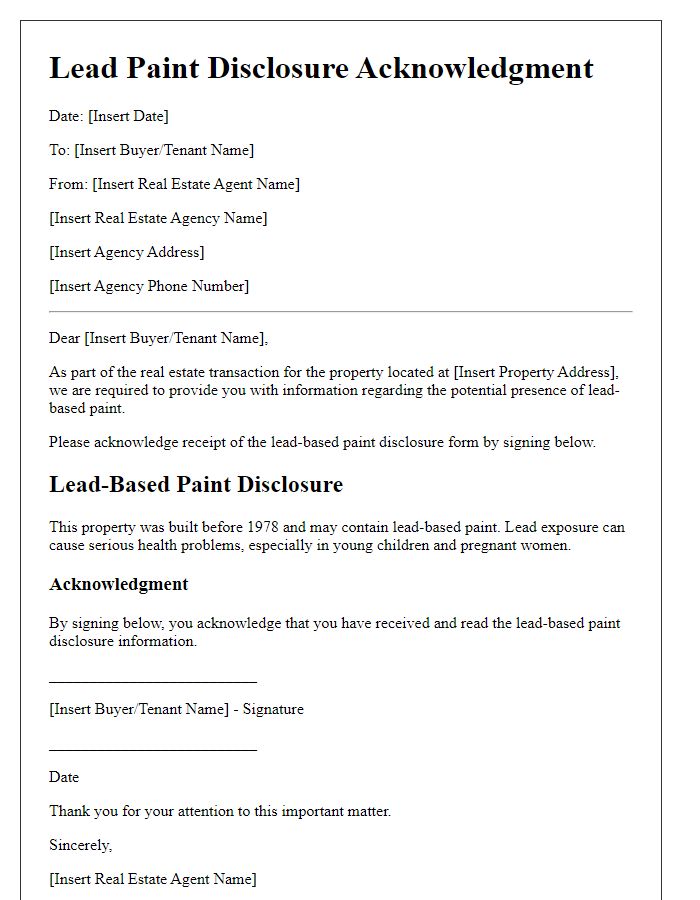
Letter template of lead paint disclosure acknowledgment with inspection details.
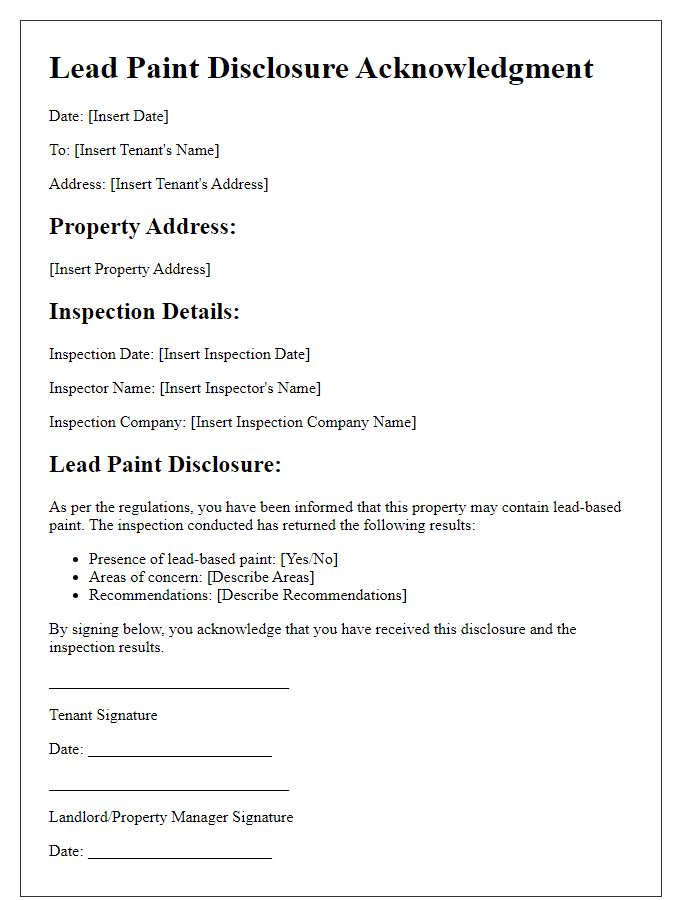
Letter template of lead paint disclosure acknowledgment for rental agreements.
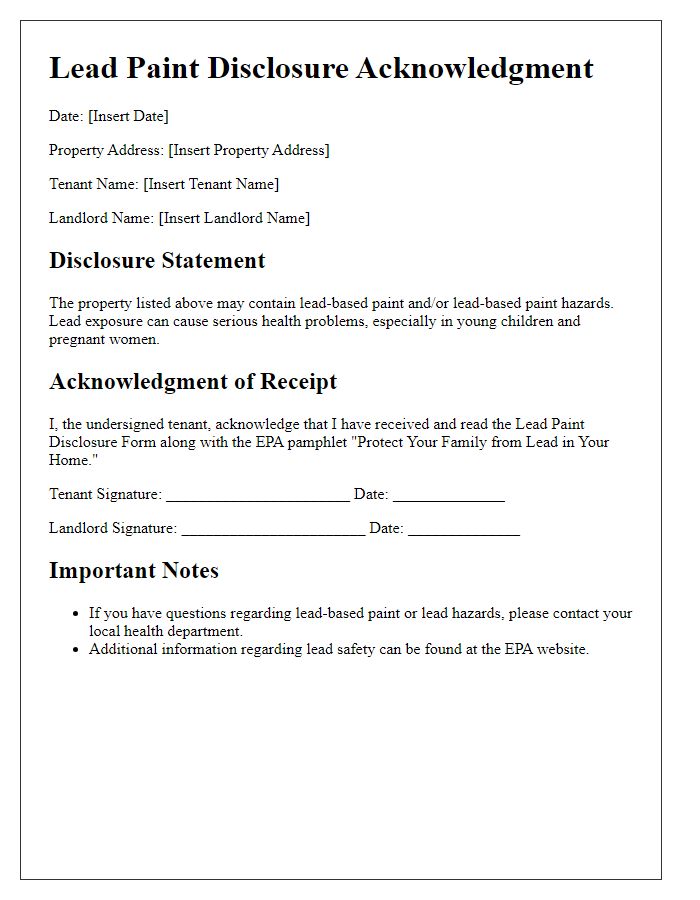
Letter template of lead paint disclosure acknowledgment for housing assistance programs.
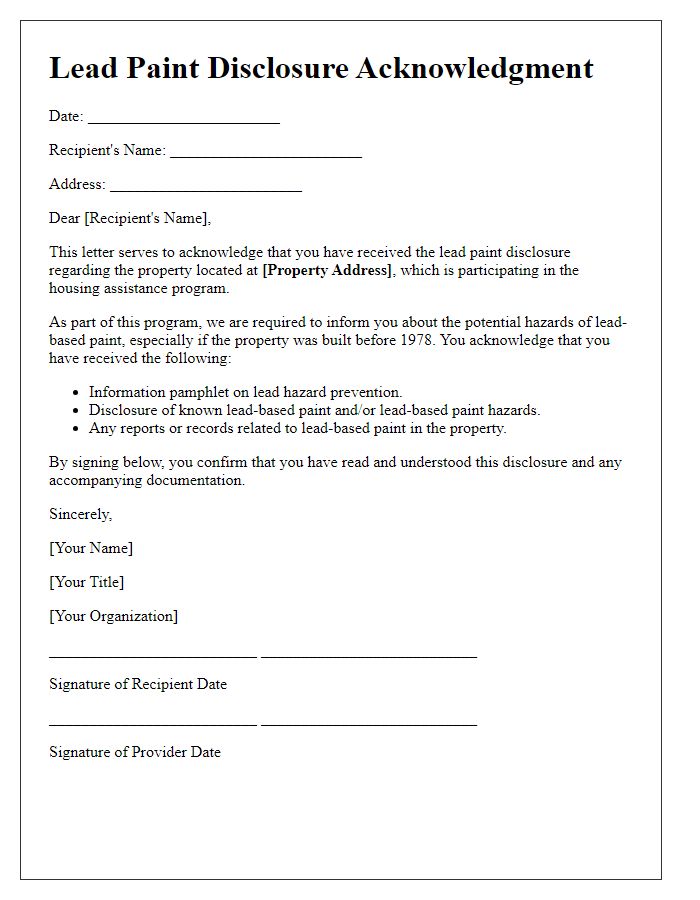
Letter template of lead paint disclosure acknowledgment for commercial property lease.
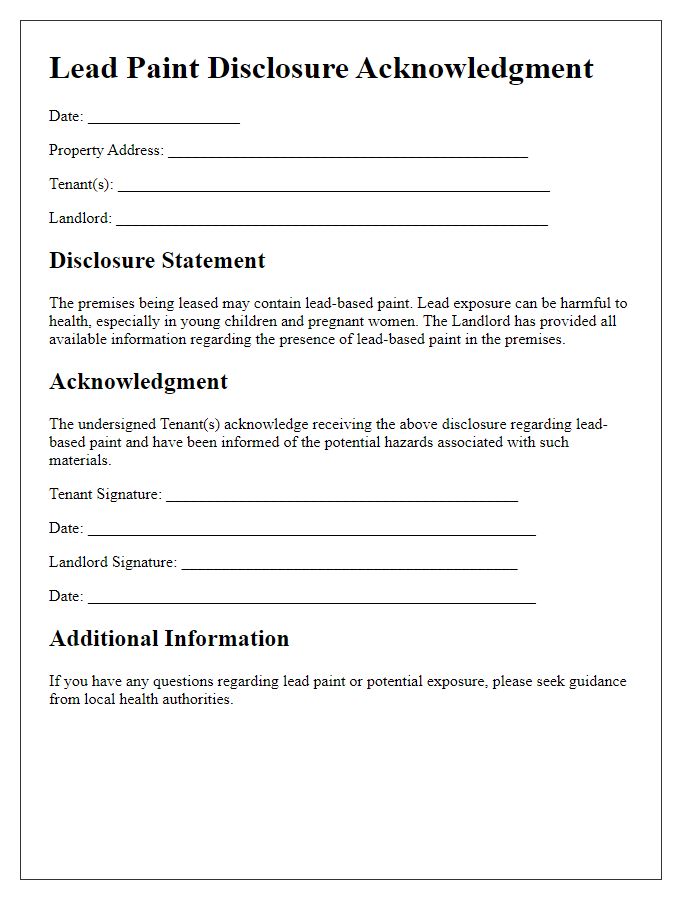
Letter template of lead paint disclosure acknowledgment for property management companies.
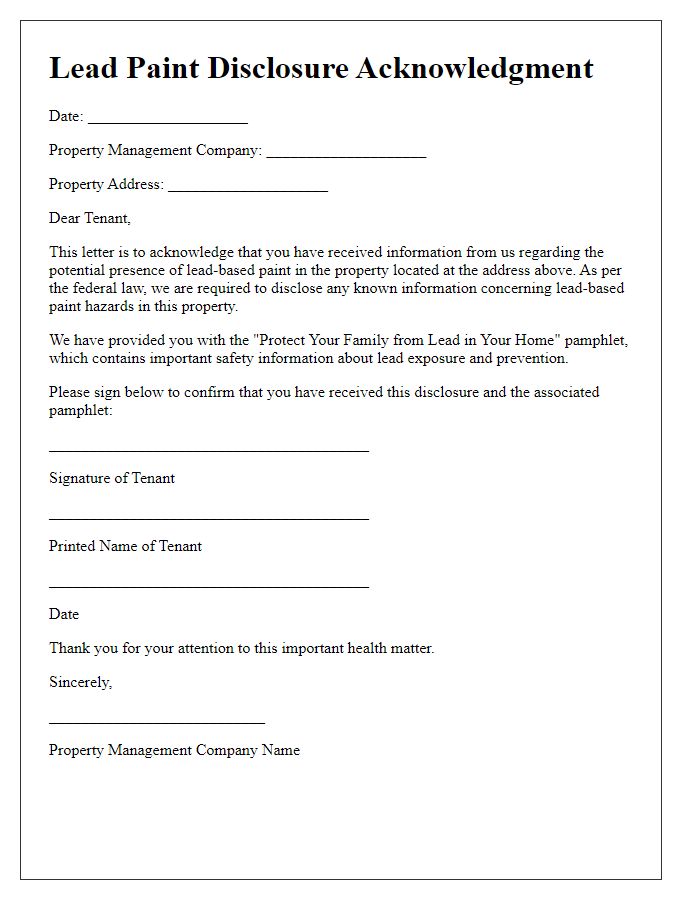

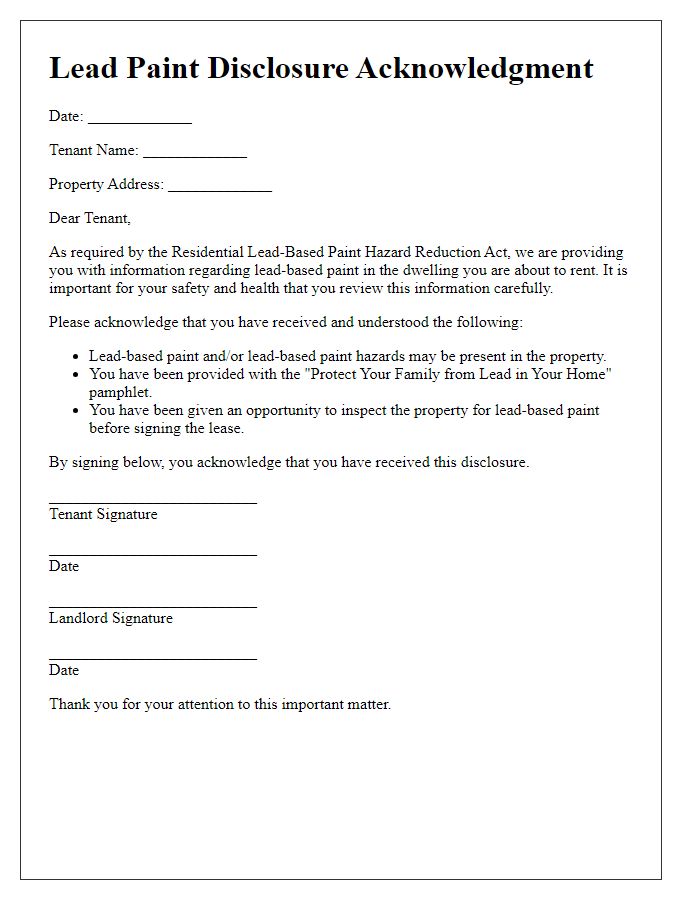
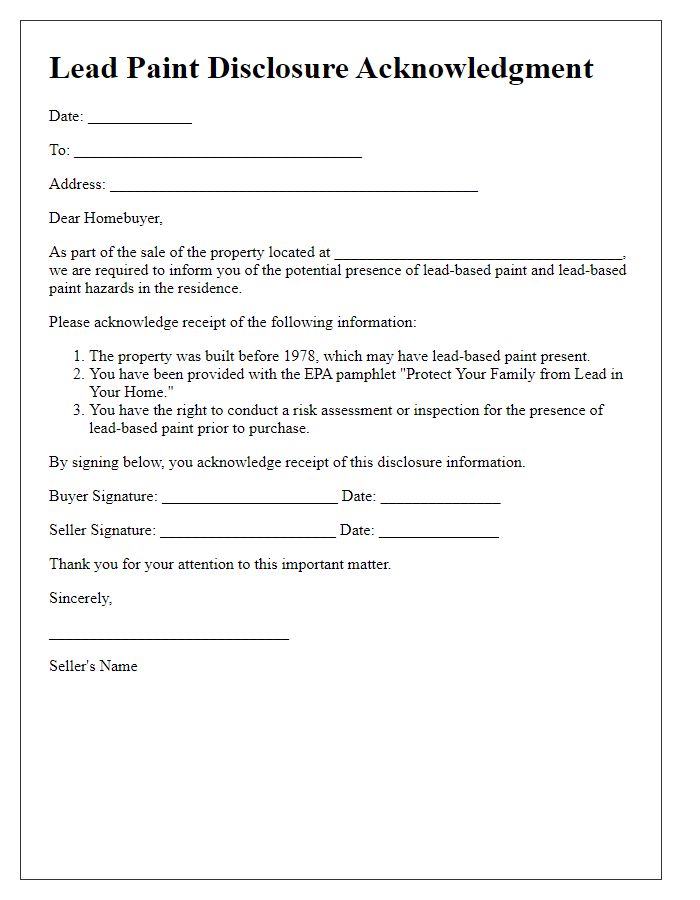
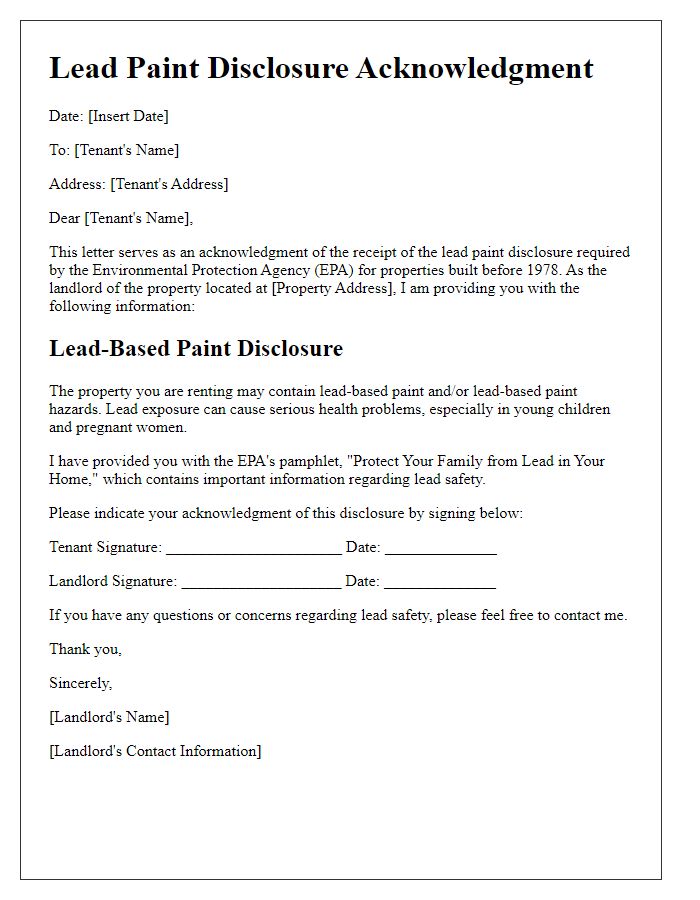
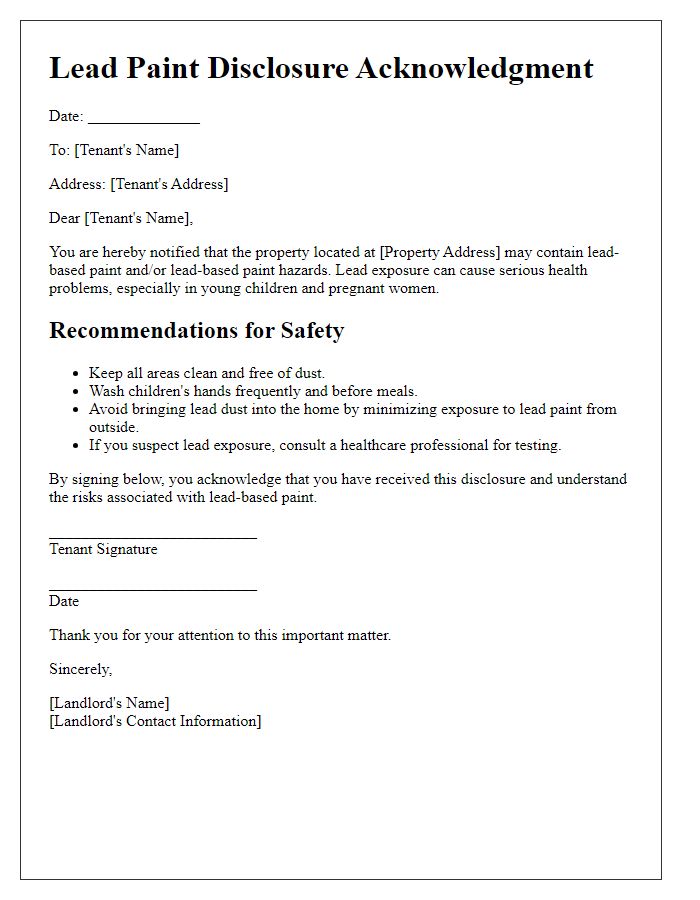


Comments